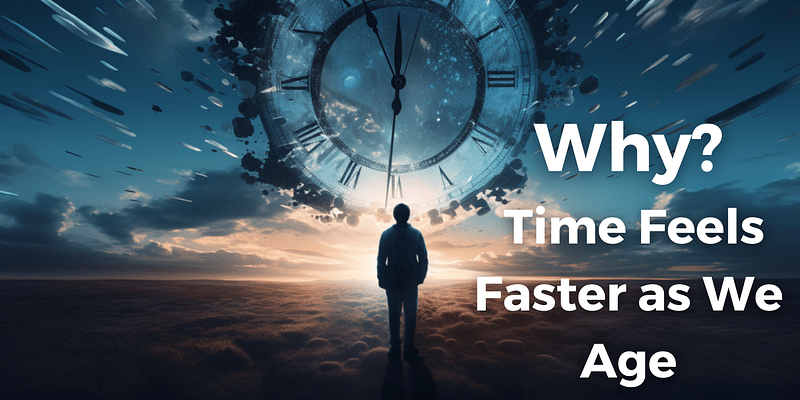Why Time Feels Faster as We Age: The Science Behind Faster Years
Exploring Professor Adrian Bejan’s Insightful Theory on How and Why Our Perception of Time Accelerates as We Grow Older: A Journey from Mind Time to Clock Time
Time has a funny way of fooling us. As children, days seemed long, and summer vacations felt like they lasted forever. Yet, as adults, years appear to zip by in a flash. Ever wondered why?
A groundbreaking paper from Professor Adrian Bejan of Duke University,delves into the physics behind this phenomenon. Here’s a simple breakdown:
1. Mind Time vs. Clock Time: While clocks measure time consistently (24 hours a day, every day), our personal experience of it varies. This is the difference between "mind time" and "clock time".
2. The Role of Vision: As we age, the way our brain processes what we see changes. When younger, we constantly take in and process new visuals, making time feel lengthy. As we age, this process slows, making time feel like it's racing.
3. The Impact of Fatigue: Tiredness affects how our eyes move and process visual data. When athletes are exhausted, for instance, they often struggle because their sense of timing is disrupted.
4. Brain Development: As our brain becomes more intricate with age, the pathways that data travel become more complex. This change in how our brain processes information alters our perception of time's flow.
5. Aging's Effects: As we grow older, our brains deteriorate, affecting our perception of time. Studies have shown elderly people process visual information slower, making them feel as though time is zooming by.
Bejan's interest in this topic started in his youth. As a basketball player, he realised that games played earlier in the day, when players were less rested, usually had worse performances. The significance of rest and its impact on the perception of time became evident.
Can We Slow It Down?
While we can't control the clock, we can influence our perception of time. Emulating healthy habits, like good sleep, can alter how we experience the passage of time.
Moreover, a study conducted on people of various age groups found interesting differences in how time is perceived. While younger children felt longer durations during action-packed events, adults felt the opposite, with uneventful durations feeling longer. As we grow, our understanding of time changes from being event-driven to being more absolute.
In essence, time's perception is both a matter of physics and our cognitive processes. While it might always seem to fly, understanding why can make us more present in each passing moment.











